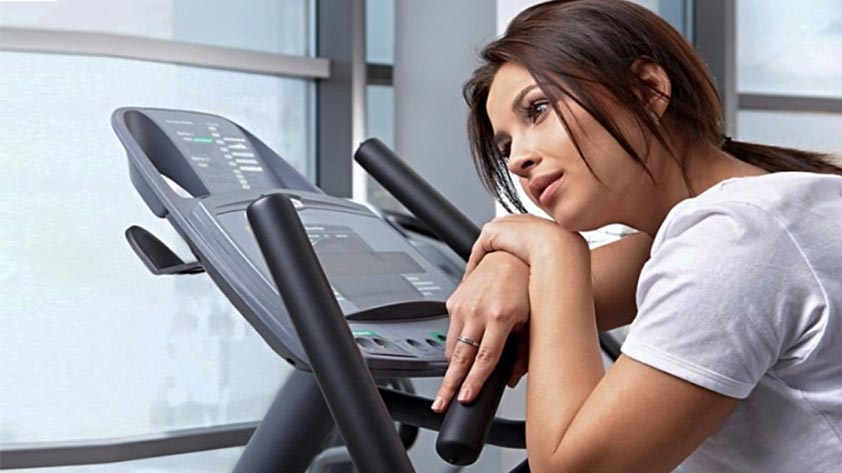
Winter is upon us, and with the colder temperatures and increased time spent indoors often come more colds and flu viruses. Regular exercise may help to ward off illnesses, but what should you do if your body’s defenses do get overcome? Everyone gets struck by a cold every once in a while, but how much should it affect your work out routine? Read on for Exercising When You’ve Got a Cold or Virus: Do’s & Don’ts!
Above the neck or below?
Generally speaking, if your symptoms are below the neck – bouts of coughing, body aches, upset stomach or fatigue – it’s best to let your body rest up until you’re feeling better.
This is especially the case if you have a fever; you shouldn’t risk raising your internal body temperature any higher than it already is because this can make you even more ill. If your symptoms are above the neck on the other hand – sore throat, headache, nasal congestion, sneezing, teary eyes – it’s generally accepted that it’s safe to work out. Common colds are relatively easy for your body to fight off, and using up some energy by exercising is not going to put you at risk.
Lower the intensity of your workouts
However, when you’re not feeling on top form, you could consider bringing down the intensity of your usual workout. If you usually go for a run, why not bundle up warm and take a more leisurely walk around your usual running route, for example?
That way, you will still get the benefits of fresh air and using your muscles a little without forcing your heart rate up and tiring your body out while it’s trying to fight off a cold.
Yoga & Pilates are ideal
Yoga and Pilates are also good alternatives to the more hard-core workouts when you’re not feeling great, because they put less stress on your body and can even combat the sluggishness associated with colds to help you get more oxygenated and feel more energised.
One place that’s probably better left unvisited while you’re fighting off a cold is the gym. Not only are public gyms largely geared towards high intensity training sessions, but also, it is easy to spread and pick up germs while inside them. This means that you are at higher risk of picking up more infections on top of the one you’ve already got, and you could also pass your illness on to others.
Walking in the fresh air…
Instead of hitting the treadmill and grabbing the weights, take things down a notch for a few days and consider taking your exercise outside in the fresh air in the form of walks at various levels of briskness, for example.
Hydration is key (your body is 60% water, remember)!
As always, hydration is key when exercising, but it’s even more important when you’re unwell. Dehydration can make your symptoms much worse, and fluids are essential in making sure your body can function properly so that it can combat the infection. If you choose to exercise when you’re ill with a cold or virus, make sure your water intake is prioritised. Additionally, hot drinks like herbal teas are a great way to stay hydrated with a cold because the steam can also help to ease congestion in your nasal passages.
Fitness means a stronger immune system and less colds and flus!
Of course, in an ideal world, we wouldn’t need to moderate our exercise regimes because we wouldn’t be getting ill in the first place. There are several theories that state that regular, moderate exercise can increase your immunity to certain diseases, although they haven’t been proven. But just like a balanced diet, regular exercise contributes to good general health, and it follows that a healthy body would be better equipped to react effectively to pathogens entering the body. So by maintaining good general fitness and eating patterns, you’ll be able to minimise the number of times you catch a cold this winter.
Listen to your own body
It’s okay to exercise if you’ve got a common cold or virus, but it’s worth reducing the intensity of your workouts. Try not to put too much stress on your recovering body, and make sure you keep yourself hydrated. You know how your own body feels better than anyone else, so make sure you listen to it. If you can’t face exercising according to your usual regime, then it’s okay to sit this one out; don’t worry, you’ll still be able to reach your fitness goals.









